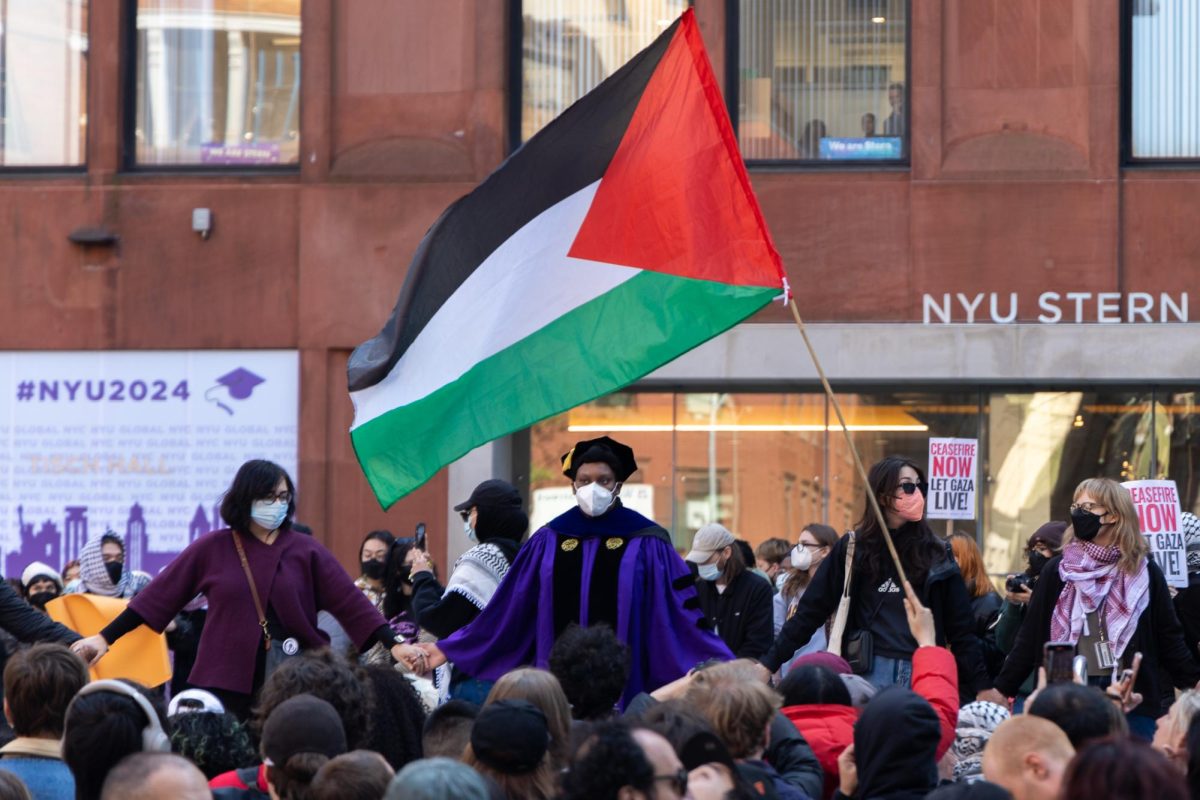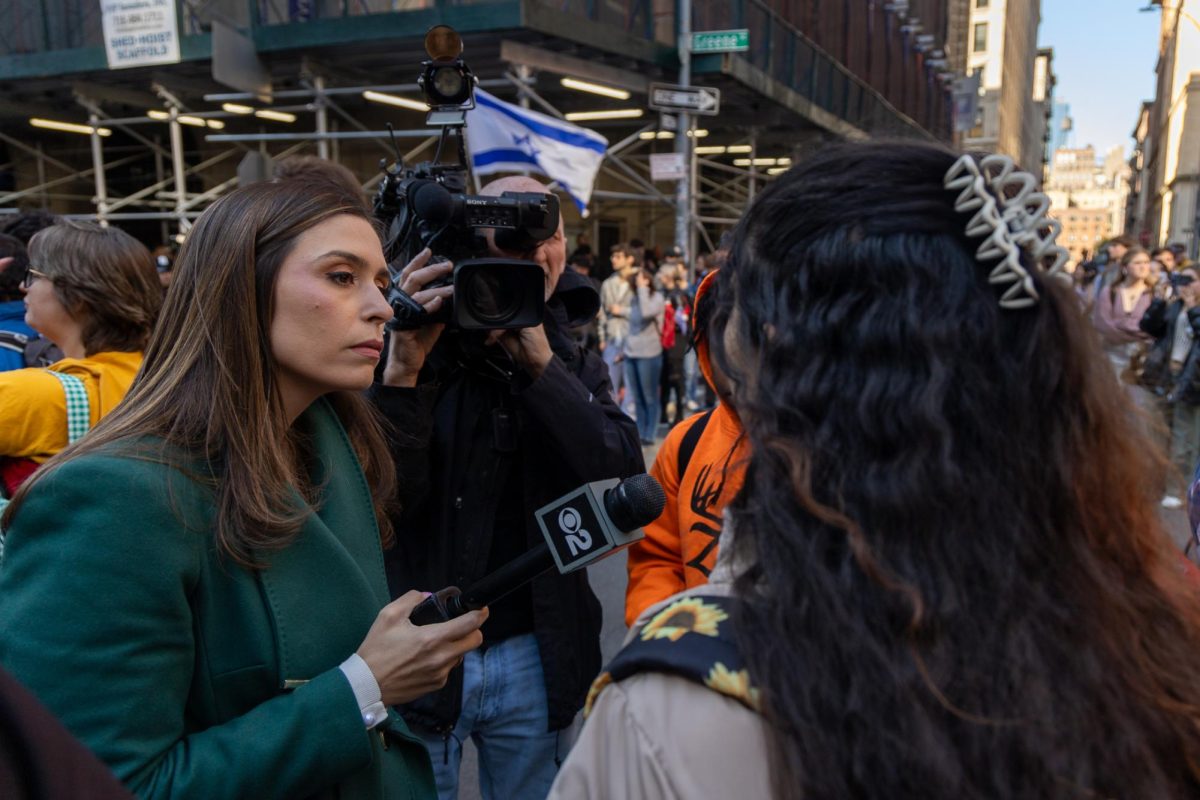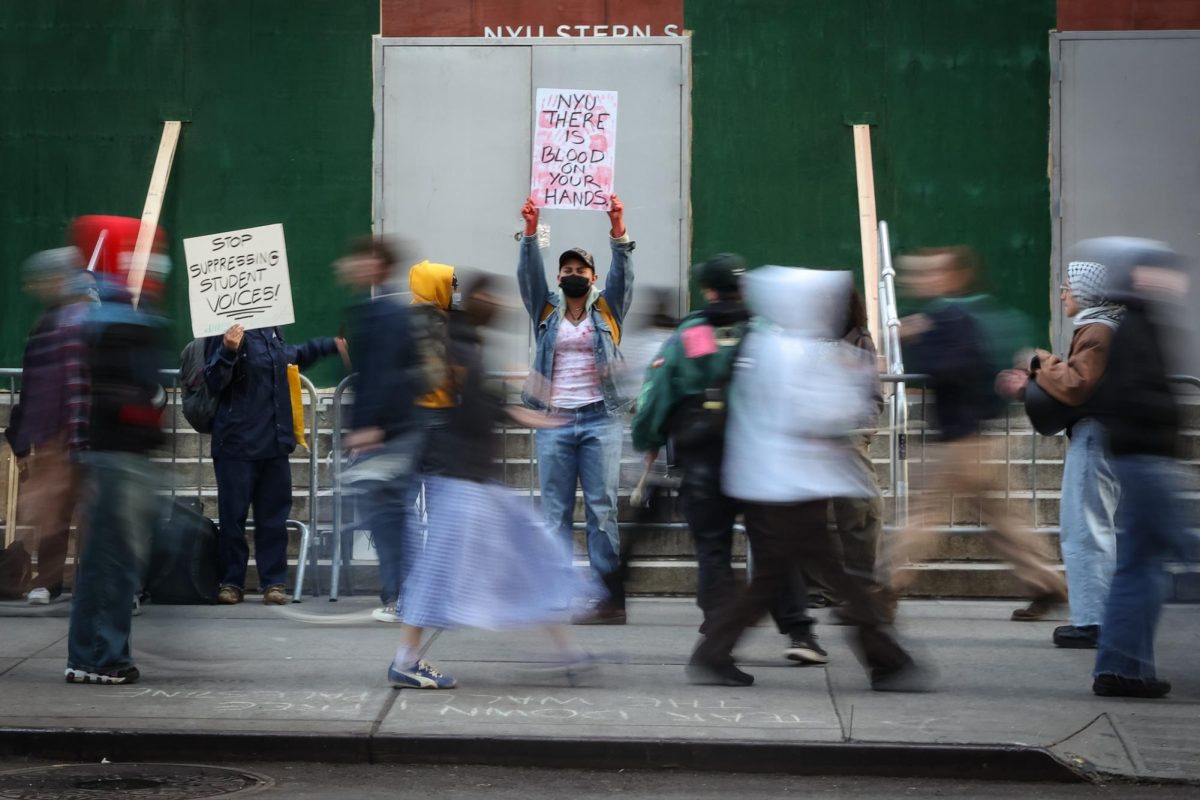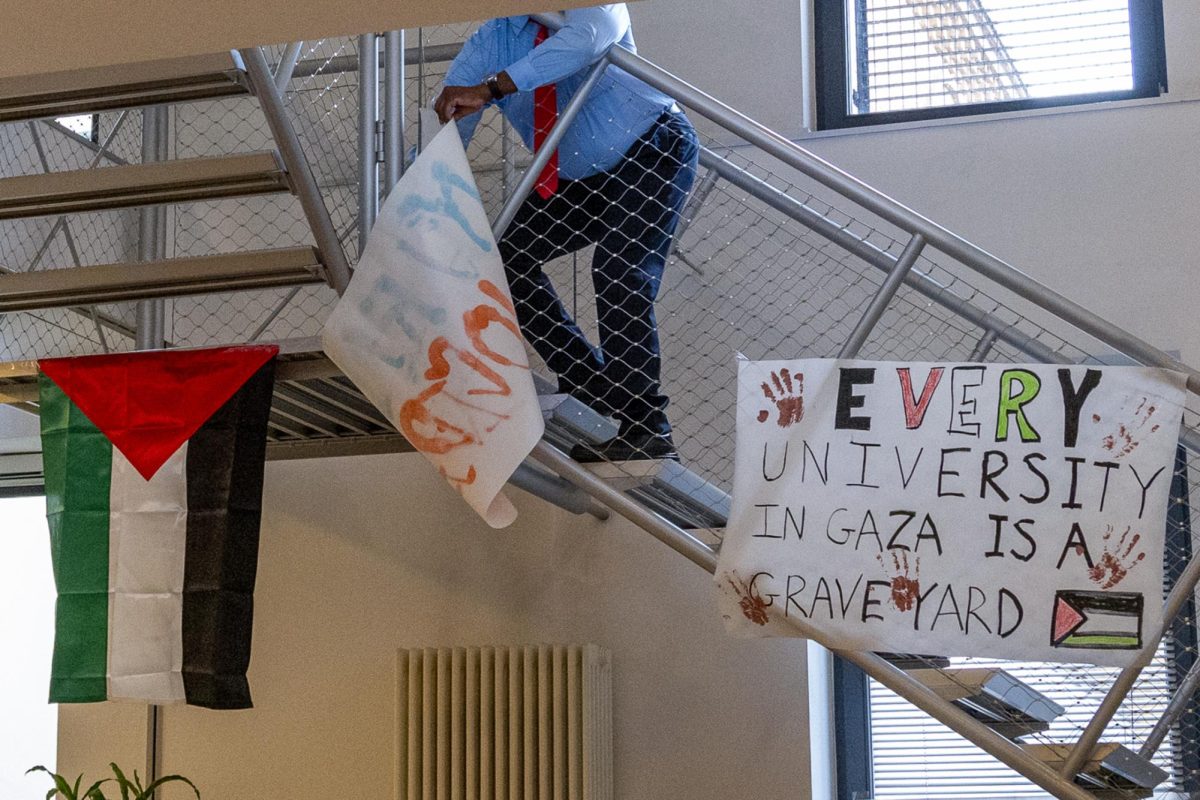Iraqi ambassador discusses military, ISIS
March 2, 2015
In response to the escalating Islamic State threat, Iraq ambassador to the United States Mohammed Alhakim and Pulitzer Prize-winning journalist Dr. Leslie H. Gelb discussed the the possibility of the United States’ involvement in another war against terrorism. NYU School of Law hosted the event, which was held at Kimmel Center for University Life on Thursday.
Alhakim said helping Iraq would be in the United States’ best interest because terrorism is not exclusively a threat in Iraq.
“It’s a problem not only for Iraq but for all of the world,” Alkahim said. “What we need to do to face a brutal group like that is fight them together and fight that ideology. I personally think that without the help of the United States, Iraq will need miracles to get rid of ISIS.”
Gelb questioned where the forces for a war would come from, and Alhakim continually said he believed Iraqis are capable of fighting terrorist groups, given that they receive proper training and proper tools.
Gelb said Iraq should supply the troops. He said Americans fail when they try to fight other people’s wars, citing Vietnam and Afghanistan as examples.
“The only way we can win is if the people we’re trying to help are carrying the burden of the fight and doing it effectively,” Gelb said.
Gelb said he believes the United States has a responsibility to provide help to other countries that are threatened.
“We have to get involved,” Gelb said. “It’s a real threat. It’s a threat to our friends in the area and also a terrorist threat throughout the world.”
GSAS student and audience member Sulafah Al Shami said our responsibility to Iraq stems from the United States’ history with the country.
“A more serious approach to helping Iraq overcome its difficulties would’ve been directly assisting Iraqis in maintaining law and order in their country, which it has failed to do,” Al Shami said.
GSAS student Karim Dewidar said she was disappointed with some of the ambassador’s responses.
“The ambassador was a bit frustrating,” Dewidar said. “He gave very diplomatic answers, danced around touchy subjects, and followed a script seemingly. I was disappointed on the substance.”
CAS sophomore Krishna Kulkarni said the United States should not get involved in another conflict, but rather have a supportive role.
“The United States shouldn’t get tangled in the conflict, but it has an important role in bringing countries together to support armies that have a genuine interest,” Kulkarni said. “And that’s where the future lies: helping smaller groups take on ISIS.”
A version of this article appeared in the Monday, March 2 print edition. Email Amanda Morris at [email protected].











































































































































